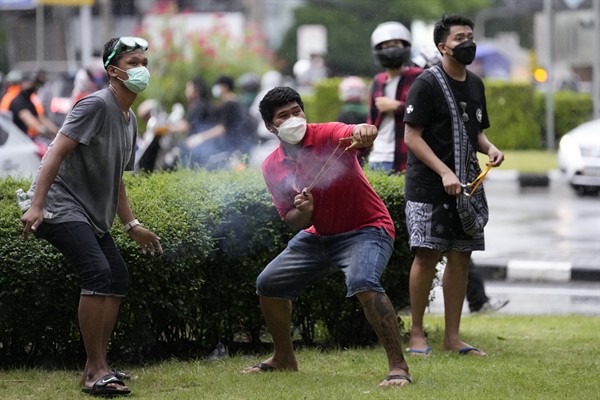In recent weeks, Thailand, like several other Southeast Asian countries, has erupted in increasingly ferocious street protests. Throughout August, thousands of Thais, including many young people, took to the streets to express their anger at the current government and demand changes at the top. Some younger, desperate and increasingly uncompromising demonstrators have started driving around in groups, battling police and destroying small police stations.
The demonstrations initially seemed to take the government, led by former coup leader and now Prime Minister Prayuth Chan-ocha, by surprise. But the situation has now become far more dangerous. Thai police have resorted to force, beating demonstrators and firing rubber bullets and water cannons at them. Some police may have used live ammunition, including at children protesting.
Perhaps the government had become used to more muted, controllable protests. In 2019, large-scale protests did sweep through the capital and other parts of the kingdom, following a questionable 2019 election that put Chan-ocha’s military-backed coalition in power. Those demonstrations were amplified by anti-government social media activism and pushback in parliament by opposition parties, which kept up a drumbeat of criticism of the government. The parliamentary defiance was led by the main opposition party, Future Forward, and its charismatic young leader, the billionaire Thanathorn Juangroongruangkit. Future Forward had performed well in the elections and might have won them in a free and fair vote.

